Diabetes is a group of diseases that affect how your body uses glucose, also called blood sugar.
The underlying cause of diabetes varies, however, the problem is the same – there is too much sugar in your blood.
Diabetes is one of the leading causes of death in the United States along with heart disease, cancer, Alzheimer’s, and stroke.
There are more than 100 million adults in the United States diagnosed with diabetes or pre-diabetes.
Can you join the military with diabetes?
In the past, the answer was a firm no. However, some report that enrollment into the U.S. Military has loosened up some of its standards.
It is now possible to continue serving if you are already enlisted and then diagnosed with type 1 or type 2 diabetes. Though diabetics face an uphill battle to join the military, there are a few avenues worth pursuing.
Please continue reading to learn more about how each military branch treats the issue of diabetes.
Related Article – 20 Health Conditions That May Disqualify You From Military
Jump To A Section
Army Policy on Diabetes in 2023
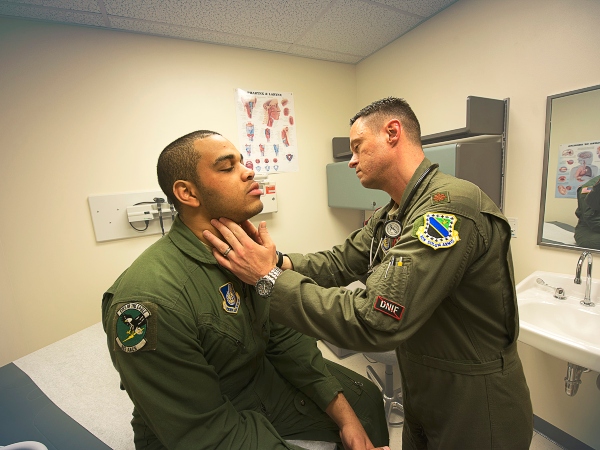
The official Army regulations (40-501, standards of medical fitness) state that for appointment to the military, “current or history of diabetes mellitus (25) does not meet the standard” for enlistment.
The Army, like every other branch of the U.S. Military, is pretty specific in that it does not enlist people diagnosed with type 1 or type 2 diabetes.
However, some argue that the military has become more lenient regarding diabetes and other medical conditions that previously prohibited some from joining the Army.
In fact, regulations now state that if a soldier is diagnosed with diabetes while already on active duty, the soldier is required to undergo a medical board evaluation and can still remain enlisted if found fit for duty.
Related Article – Army APFT Test Standards For Males and Females
Type 2 diabetics have a greater likelihood of gaining acceptance, especially with the right waiver.
Why? The military states that a medical board evaluation is not required if the person maintains a hemoglobin A1C of less than 7%.
Furthermore, the individual must not need medication and only lifestyle modifications (exercise, diet, etc) to remain fit for service.
It gets a little more complicated if the servicemember with diabetes requires a significant amount of medication, such as insulin for type 1 diabetes.
If that is the case, it could deem the individual “medically non-deployable” and require a medical board evaluation.
The military member of the military may be removed from service or remain on active duty. The results are quite variable.
It is worth noting that medical boards vary by service (Army, Navy, Air Force, etc).
There have been inconsistent rulings over the years regarding various conditions depending on the board that handled the evaluation.
Related Article: Can You Join The Military With Asthma?
Determination of Military Readiness
The medical board is established by each branch of the U.S. Military in order to ensure each service member that joins the military is prepared and ready for any type of situation.
Soldiers are deployed into all types of dangerous situations and must demonstrate basic physical and mental readiness.
Unfortunately, diabetes can cause an unnecessary distraction in times of combat.
It can damage the cohesiveness of a squad, and also put other soldiers at risk if they are attending to your medical needs during combat.
Sadly, diabetes adversely affects the career of a soldier as certain opportunities for promotion and development are restricted or blocked because of the medical condition.
It may prevent you from being able to go on certain assignments, which ultimately fosters a bad psyche.
The Army, like other branches of the military, likes to remind servicemembers that the world in which they exist is far different from the “real world.”
Anything that can get away from the single-minded objective of completing a mission is a serious risk.
Related Article – Can You Join The Military With Autism?
Air Force Policy on Diabetes in 2023
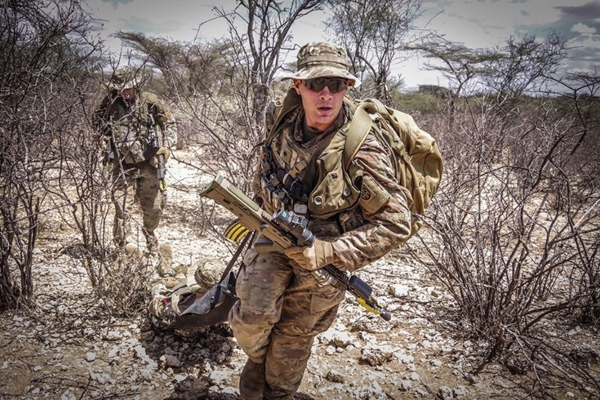
The Air Force has regulations regarding diabetes that are similar to the Army’s.
The manual notes that the Air Force’s medical requirements are at a minimum in accordance with DoD policy.
The Department of Defense sets minimal medical standards for all branches in DoD Instructions 6130.03, Volume 1 for enlistment or commissioning. Volume 2 covers medical standards for retaining current active duty members.
These standards include the same policy as the Army that anyone with an HbA1c of less than 8% can deploy with some careful considerations.
The Air Force supports the general stance of the U.S. military that if found fit for duty, the soldier may not get deployed to areas where insulin cannot be properly stored.
However, this policy applies to retention, not new recruits. The DoD standard means that individuals with diabetes cannot enter the service.
A history of diabetes mellitus or diabetes insidious is considered a disqualifying condition.
Related Article: Can You Join The Military With ADD/ADHD?
Marine Corps Policy on Diabetes in 2023
As previously noted each branch of the military has its own medical board. However, the odds of joining the Marine Corps with diabetes are very low.
Marines often carry out some of the most physically demanding, dangerous, and daunting missions of any branch of the military.
As a result, they expect Marines to maintain peak physical condition. Any medical ailment that could limit the ability of a Marine in a combat scenario could jeopardize the mission.
At the same time, persons with diabetes need ready access to medications and the right type of food to remain healthy. The overall policy of the DoD, and the Corp, is that military service shouldn’t make an existing condition worse.
It is the unfortunate reality of joining the Marines.
With all of the above said, a Marine Corps recruiter will be able to guide you in the right direction regarding your potential eligibility requirements.
Navy Policy on Diabetes in 2023
According to the Diabetes Handbook for Active Duty Service Members, the Navy mentions that six out of every 1,000 service members live with diabetes.
However, it goes on to address that “diabetes will have an impact on your military career.”
Consequently, the Navy treats diabetes similarly to other military branches.
Diabetes is a disqualifying condition for new enlistees or potential officers according to the Department of Defense, and the Navy follows the DoD policy.
However, it is more accommodating to active duty members diagnosed with the disease after the fact.
Though the Navy manual mentions that diabetes will “limit” your options for deployment, it does not necessarily state that the medical condition is not allowed, with no exceptions.
There is the possibility to submit medical waivers regarding the disease in the Navy, along with every other branch of the U.S. Military.
Related Article: Can You Join The Military With Flat Feet?
Coast Guard Diabetes Policy in 2023
As of July 2022, the U.S. Coast Guard’s official policy is to align with the Department of Defense policy on medical standards.
This applies to both accession (enlistment and commissioning) and retention (current active duty) standards.
This means that you won’t be able to join the Coast Guard with Type I or Type II diabetes.
However, for active duty members that are later diagnosed with this condition, the path to retention is very possible under certain conditions.
Diabetes – A Serious Health Problem
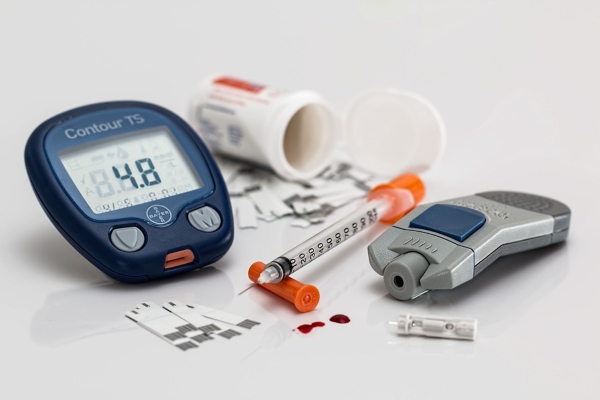
Glucose is essential to your health because it serves as a vital source of energy for the cells that make up your muscles and tissues.
Furthermore, it represents the main source of fuel for your brain.
Chronic diabetes conditions include Type 1 diabetes and Type 2 diabetes.
The Centers for Disease Control and Prevention (CDC) estimates that over 20 percent of the U.S. population over the age of 20 has one type of diabetes.
It designates diabetes as the 8th leading cause of death in the country.
In 2021, over 103,000 people passed away due to complications related to diabetes.
The biggest difference between type 1 diabetes and type 2 diabetes is insulin.
Individuals diagnosed with type 1 diabetes require exogenous (externally supplied) insulin as their body is incapable of making it.
Meanwhile, people with Type 2 diabetes can make their own insulin, but they may not make enough or their body cells may be resistant to its effects.
Diabetes can ultimately lead to heart disease, kidney failure, blindness, or amputation of the lower extremities.
Related Article – Air Force PT Test Standards
Causes of Diabetes
The exact causes of type 1 diabetes are unknown, but it is often genetic and diagnosed at a young age.
The pancreas cannot manufacture the necessary insulin, which is responsible for providing energy to the tissues and organs.
This also results in high levels of glucose in the bloodstream.
Some doctors believe type 1 diabetes is a combination of genetics and other environmental factors not clearly understood yet.
On the other hand, type 2 diabetes and pre-diabetes are when the cells in your body become resistant to insulin, and the pancreas is unable to create enough insulin to overcome the resistance.
Excess of body fat and a condition known as metabolic syndrome (or insulin resistance) are the leading causes of Type 2 diabetes.
However, it is not the only cause of it.
The most tragic part of diabetes is that currently there is no cure.
However, the disease can go into remission.
It is possible to manage the condition with the right medication and changes to your lifestyle.
Related Article – Can You Join The Military With A GED?
Getting Tested for Diabetes
Diabetes is diagnosed by using one of four blood tests.
It is simple to get checked at your primary care physician’s office or health clinic.
The test will measure your blood glucose level.
It basically monitors how much sugar is in your blood.
It is a really good idea to get tested for diabetes, especially if you are considering the military.
In fact, some people with diabetes do not have symptoms immediately and therefore are unaware of the disease.
The earlier you can learn of a diagnosis, the better your odds of survival just like any deadly disease.
Conclusion
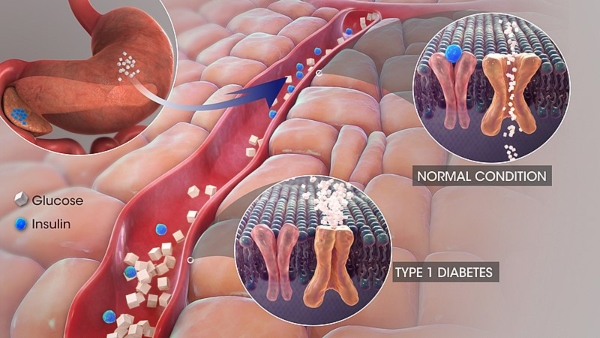
In the past, it was very difficult to get enlisted in any branch of the military with type 1 or type 2 diabetes.
Make sure you touch on all of the branches and try to find and talk about the official policy for each.
While the standards are still fairly strict for new enlistees, the military has loosened its regulations on active duty members diagnosed with diabetes after enlistment.
If current soldiers with diabetes can remain vocal advocates and demonstrate they are able to still perform well in combat, it could lead to the U.S. Military becoming even more lenient regarding diabetes in the future.
Related Article – Navy PRT Standards For Males and Females
Sources:
- https://www.cdc.gov/media/releases/2017/p0718-diabetes-report.html
- https://www.medicalnewstoday.com/articles/282929.php
- https://www.healthline.com/diabetesmine/five-questions-diabetes-military-dr-j-pinsker#4
- https://www.medicalnewstoday.com/articles/317074.php
- https://www.endocrineweb.com/conditions/diabetes/who-should-be-tested-diabetes-how-diabetes-diagnosed
- https://www.diabetes.org/resources/statistics/statistics-about-diabetes
- https://work.chron.com/can-diabetics-join-army-22446.html
- https://care.diabetesjournals.org/content/13/8/903.1
- https://academic.oup.com/milmed/article/183/11-12/e603/4959959
- https://www.med.navy.mil/sites/nmcphc/Documents/health-promotion-wellness/Chronic-Condition-Toolbox/Diabetes/Diabetes-Handbook-for-Active-Duty.pdf
- Ikon Pass Military Discount: Learn How To Save Big - January 31, 2025
- RTIC Military Discount: Find Out How To Save Big on Gear - January 30, 2025
- Traeger Military Discount: Learn How To Save Big on Smokers - January 28, 2025

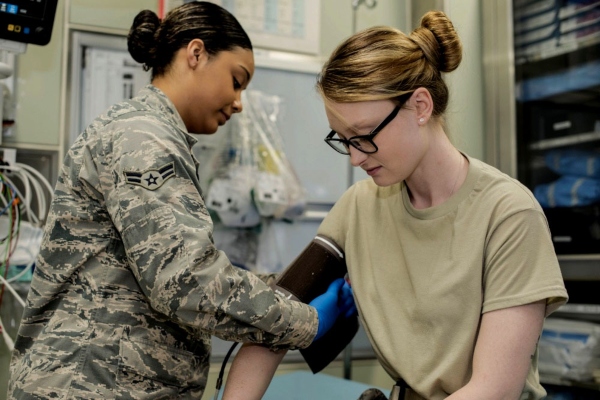
I’ve been trying like hell since 2011 to join. But I haven’t been able to. I hate not being able to serve my country. I’ll forever be stuck as a civilian who’ll never been given the chance to serve. It’ll forever hurt me until the day I die.
Kenny, I respect your passion for your country. I understand how you are so greatly impacted. My son has been affected by this discrimination, women who can’t lift as much as men can join but why are diabetic men treated as though the rest of their body is a waste of talent? There are beautiful brains out there that this country needs and they are throwing opportunities for themselves away. Everyone should have a right to fight and die for their country if they do choose to.These injustices should be fought against just as the women fought for their right to fight in the military as equals.My son aged 19 was training for joining the military when he was diagnosed with type 1. It has been his life dream to join,his grandfather was a Sargeant in the Vietnam war and influenced him greatly. It’s a part of who he has always been and always will be. If they will keep soldiers who are in then they should also find more support roles Etc and better deployment for those who have the condition already. It makes no sense.